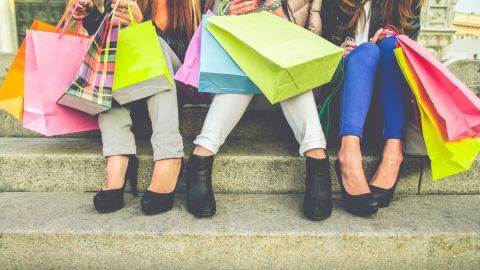In an Unequal America, We Buy Our Way to Happiness

We are living through another gilded age, but unlike the late 19th century, extremely high income inequality has failed to stoke popular fervor. Yes, we have Elizabeth Warren, notable for her singularity, but a broader social movement has failed to coalesce. In 2013, for example, only 5 percent of Americans identified the poor or middle class as their most important concern.
So why we are unequal, but happy? Steven Quartz, professor of philosophy and neuroscience at the California Institute of Technology, says that emotion-laden consumerism has helped us achieve a baseline contentment, even if more objective standards of social justice fall short.
“Consumerism has expanded the lifestyles, niches, and brands that supply the statuses we seek.”
More than ever, says Quartz, products available for purchase attach themselves to our values: If you care for the environment, buying a Prius makes you feel good; if luxury goods soothe you, designer handbags are priced for the masses; if you fancy yourself to be a free and creative thinker, a Mac will make you feel at home; and so on…
“The pursuit of ‘the cool,’ in our view, fundamentally altered the psychological motivations underlying our consumer choices.”
During the 1960s, the American counterculture purposely inverted elite values, preferring James Dean’s leather jacket to the business suit of advertising executives. But today, values are more diverse and keeping up with the Joneses often means out-cooling them — and there is no shortage of opportunity to purchase coolness.




